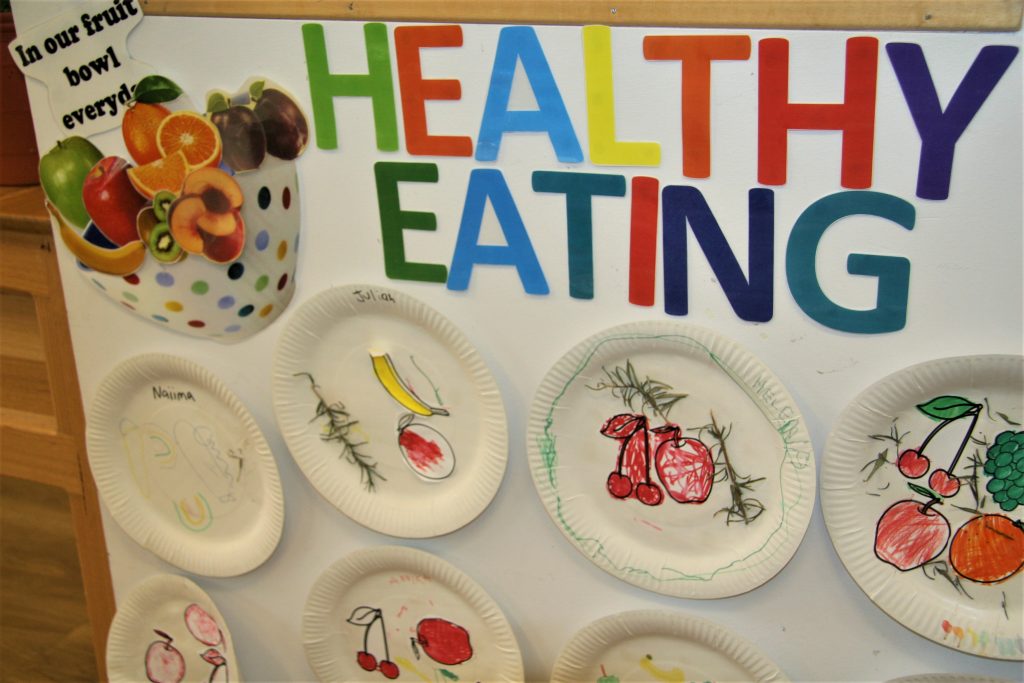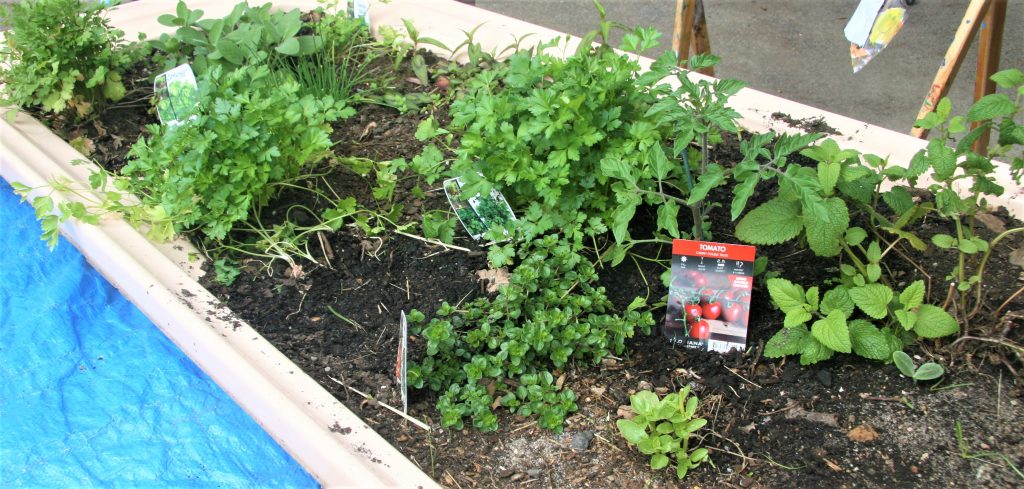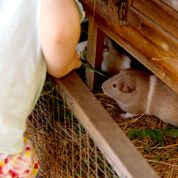Our Curriculum
Our high quality educational programs are based on the principles of the Early Years Learning Framework as well as the Centre’s philosophy. The educational programs structure and routines are planned to holistically address each of the learning outcomes within the Early Years Learning Framework, including our engagement and strategies used when the children are playing.
Our Philosophy
At Annie Dennis, we believe in providing a nurturing environment for children, where they feel safe and free to explore their environment through an integrated, play-based approach. We encourage the best possible growth and development of children, where teachers respect and respond to each child’s individual learning style and developmental stages in collaboration with their families and communities.
We believe, in relation to:
CHILDREN AND FAMILIES
- The emotional and physical wellbeing of each child is fundamental to their sense of security.
- Children’s self-esteem and sense of belonging is essential to their continuing growth and development.
- Children need to be supported to freely and safely experience, and express their emotions.
- Children need time and opportunities to develop positive relationships with each other and their educators.
- Children are spontaneous and naturally motivated to learn through play and exploration.
- Individual diversity is respected, encouraged, and celebrated.
- Families are the primary care-givers and educators of children and their diversity in respected, acknowledged and celebrated.
EARLY CHILDHOOD EDUCATORS
- Warmth and empathy are essential for developing positive relationships with children and families.
- We are advocates for young children, families, and our profession.
- Positive behaviours and attitudes need to be role modelled to children, families, and each other.
- Learning is a shared, active process for children, families, and educators.
- Ongoing professional development and reflective practice are necessary to improve our programs and practices.
- Working collaboratively with children and families encourages children to reach their full potential.
- Each educator brings their own experience, knowledge, understandings and values to the program, and this diversity has its own place in the education of children.
- Educators need to support each other in the development and implementation of programs.
- Educators respect each child and families, cultural diversity and uphold cultural responsiveness.
- Educators are knowledgeable and confident in supporting families and primary care-givers in their parenting role providing them with supportive feedback for the best interest of their child.
EDUCATIONAL PROGRAMS
- Educational programs are relevant to children’s lives and take into account their existing knowledge and understandings.
- Educational programs incorporate and celebrate Indigenous history and culture (near and far).
- Exploration, play, role-modelling, intentional teaching, discussion, spontaneity and flexibility are all important characteristics of high-quality educational programs.
- Children learn best when offered open-ended materials, ample time and the opportunity to investigate, imagine, dream, hypothesise, problem solve, transform, invent, make decisions and form opinions.
- Educational programs acknowledge the sovereignty of Aboriginal and Torres Strait people and their culture is embedded in our daily practice.
ENVIRONMENT
- Both indoor and outdoor environments are educative in themselves.
- In taking an active role in caring for our environment and promoting and contributing to sustainable practices throughout the centre.
- Both indoor and outdoor environments need to include play spaces for individual children, small groups and large groups.
- Children learn best in a supportive, flexible, relaxed and safe environment, rich in opportunities and resources, that meets the changing needs of children.
- Children, families and educators all have a voice in the development of our environments and educational programs.
COMMUNITY
- We exist because of the wider community and for the wider community and we foster positive connection.
- Strong community networks provide information, resources, support, security, comfort, possibilities, confidence and resilience.
- We share our knowledge, skills, experience and resources with our diverse community.
- We encourage families to contribute and work in partnership with the centre management and the educators in the management and future direction of the centre.
- Open and accessible governance structures are vital in the management of the centre.
- We commit in educating children that we are part of a global community where our actions and decisions have an impact on other people’s lives.
- Reviewed March 2023
Documenting Children’s Learning and Development
Each child’s progress is monitored through observation based assessment and documented using an online e-portfolio platform called StoryPark. Educators compile a comprehensive profile of each child’s learning and development capturing their unique attributes and qualities whilst regular communication with parents is maintained.
Educators document ‘what we did today’ and are always willing to discuss a child’s day at pick up. Our educators are available for one on one meetings, or phone calls to discuss a child’s individual progress.
Environmental Sustainability
Welcoming learning environments are an important part of how children interact with their surroundings and learn through play. Sustainability is an integral part of our curriculum at Annie Dennis and is embedded in both the learning programs and environments. Our open, natural environments allow children to interact with nature through play experiences such as sand and water. Children are also taught personal responsibility through caring for plants, animals and worm farming. There’s even a mud-patch for serving up fresh mud pies or simply feeling the mud squish between little fingers! Educators engage children in discussions around sustainable practices and the children are provided opportunities to put this into practice through their daily routines. Children frequently use recycled materials to create amazing art creations and adults are supported to demonstrate sustainability through our clothing and book swap in the foyer to reduce, reuse and recycle and avoid garments ending up in landfill.
Cultural Diversity
At Annie Dennis Children’s Centre children are exposed to various cultural learning opportunities. Striving for cultural competence, our educators are open-minded and welcoming to cultural experiences and teachings from families that reflect our diverse community. This is evident throughout all programs and implemented through our connections with families.
Aboriginal and Torres Strait Islander culture is embedded in all educational programs in various ways, including through literature, play spaces, discussions and incidental daily conversations. We are currently establishing our Reconciliation Action Plan and developing this using the Narragunnawali platform. We have a number of Educators involved in a working group that connect on a regular basis to continue on our RAP journey.
Incursions and Excursions
Planned incursions are organised throughout the year to enhance the educational programs and increase learning objectives. These may include, but are not limited to: Aboriginal storyteller, responsible pet program, puppet shows, drumming workshops and creative dance… to name just a few.
Children experience learning opportunities outside the centre too, such as going on a walk to the park, discovering what’s in my neighborhood, library visits, donating to the op shop, a visit to all nations park or local schools. Families are encouraged to volunteer on excursions to ensure higher adult to child ratios to ensure the health and safety of the children.
Protective Education Program
At Annie Dennis, we are committed to the safety and participation of all children. We want children to feel empowered! The protective education program is delivered in a developmentally appropriate way and is linked in with the Early Years Learning Framework and the National Quality Framework. As early childhood educators there are regulatory requirements in place to ensure we complete annual child protection training to educate staff on child abuse risks. This is a sensitive subject and can be very confronting. One of the challenges for both educators and parents is how to prepare children for these potential dangers.
Children in the three and four year old programs participate in a Protective Education Program that is designed for early years educators to teach age appropriate abuse prevention to children. The Safe4Kids program is a primary prevention, early intervention program with a holistic approach to protective education (Child abuse prevention education). The program is culturally sensitive and children are taught basic, age-appropriate abuse-prevention education concepts and given the opportunity to practice these new skills in a safe, controlled environment. Each concept is taught and reinforced with daily learning experiences which include fun, games, activities and music.
It is also a good life skills program, it teaches children to be persistent and assertive and helps build important resilience skills in children.
Food and Nutrition
Toddlers and preschoolers can be the harshest critics when it comes to food. However, our ‘cooker’ Maria regularly receives impressive reviews from our miniature connoisseurs. Enjoyment and healthy nutrition go hand in hand at Annie Dennis. Children are provided with a variety of diverse meals that are based on the Australian Governments’ dietary guidelines and are consistent with the recommendations in the Australian Governments ‘Get Up and Grow: Healthy Eating and Physical Activity for Early Childhood’ initiative. Children are provided with a hearty meal for lunch and something lighter for afternoon tea. Fruit is available throughout the morning for children.


Dietary requirements and allergies are catered for. Maria collaborates closely with parents to ensure the ingredients and meal alternatives are suitable for their child’s specific requirements.
Maria regularly shares her recipes on Storypark. Here is a Favorite
Ricotta and chickpea sausage rolls
- 750 kg of fresh ricotta
- 1 brown onion (grated)
- 2 zucchinis (grated)
- 2 carrots (grated)
- 1.5 cups of shredded mozzarella cheese
- 1 small scan of chickpeas (drain liquid and blitz in a food processor)
- salt and pepper to taste
- 2 tablespoons of olive oil
Method
- In a mixing bowl, add ricotta and all the other ingredients and mix well until combined.
- Spread spoonfuls of the mixture onto the puff pastry sheet to form a long sausage roll, then cut to desire length.
- Place on baking trays lined with non-stick baking paper, using a small sharp knife make slits in the rolls and bake for 25 minutes or until golden brown
Our Pets
At Annie Dennis, the children share in the responsibility of looking after our pets. We have two guinea pigs, named Scruffy and CJ. We are also home to a rabbit named Poppy. Children are welcome to sign up to take the pets home for an agreed period of time, usually a weekend, though during school holidays it could be for up to two weeks! This further strengthens the connection between the educational setting and home, as well as connects children with nature and their environment. Please contact the office with any inquiries about looking after our pets.





